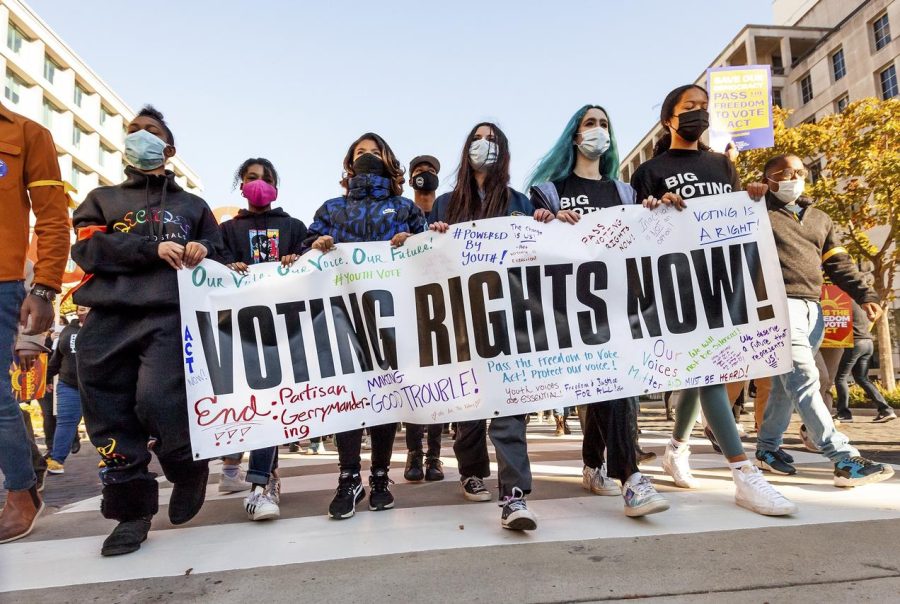Teen Voting
Teens protest for the right to vote
April 18, 2023
Recently, in Oregon, there have been efforts to lower the voting age in school district elections, primary elections, and overall. These bills have been highly controversial since they were introduced. Many have expressed concerns about the maturity of 16 and 17-year-olds and how schools could influence their vote. However, there are lots of people who feel that there should be a youth right to vote because they are capable of making informed decisions and they do many things like drive and pay taxes. They are the ones in the future who will be affected by these decisions.
The first bill to be addressed is HB 3206. This bill would allow 16 and 17-year-olds to vote in school district elections. Proponents of this bill argue that this is an opportunity for young voters to become civically engaged sooner. However, many opponents argue that teenagers are not mature enough to vote in these elections.
These same arguments are used when debating the next bill, HB 2694. If this bill is passed, 17 year olds in Oregon who turn 18 between the primary election in May and the general election in November will be able to vote in the primary election when they are still 17.
Aishiki Nag, in support of the bill, writes in their testimony “The age of the person casting the ballot, psychologically, doesn’t differ too much from the ages of 17 and 18, because by the time a person turns 16 ‘cold cognition’ is already developed (which allows decision-making in non-stressful situations).” Long story short, teens above the age of 17 are mentally ready to vote. On the other hand, there are many who oppose this bill.
“There are many studies that say that 16 and 17 year olds would not be competent voters because their brains, specifically the prefrontal cortex, is still undergoing major reconstruction and development during the teenage years,” writes Pat Krikorian. According to the National Institutes of Health, human brains are not fully developed until mid- to late-twenties which would make the current voting age of 18 not scientifically sound as well. Teenage development and the ability to make rational decisions are at the forefront of the conversation about teen voting.
Finally, the last bill considering teen voting is HJR 20. This bill seeks to lower the overall voting age in Oregon from 18 to 16 years old. One opponent, Donna Bleiler, writes, “Schools are confusing kids on their identity so they don’t even know who they are, which is delaying the maturity factor for many.” She isn’t alone in this concern; another opponent wrote, “They do not understand taxation, health and health behavior, energy, and economics, to name just a few. Before this could ever be considered, students this young would need to be given an exam with a standard. Unfortunately, Oregon public schools have done away with testing standards and have replaced that with equity.”
It appears many of the opponents of this bill are concerned with how schools teach teenagers and believe that, because of this, 16 and 17-year-olds shouldn’t be able to vote.
On the other side, many believe that because teens are often contributing to society by paying taxes and working, they deserve a vote in the laws that affect them. Patrick Stutz writes, “…16 and 17-year-olds are affected by the policies and decisions made by our government, just like everyone else. They pay taxes, drive on public roads, and attend public schools. They have a stake in the future of our state and our country, and they should have a say in who represents them and how their tax dollars are spent.” On that same note, Guadalupe Hernandez writes, “Lowering the voting age to 16 would be a powerful recognition of the importance of young people’s voices in our democracy.”
Teen voting is a wildly controversial issue that is being discussed extensively in the office right now. If any of these bills pass, it would mean that Oregon teens are able to vote on what they believe is the best option in government. Now comes the question of if the proponents of this bill will be able to argue against the overwhelming negative response from the opposers and convince the House of Representatives that teens should be able to vote.






